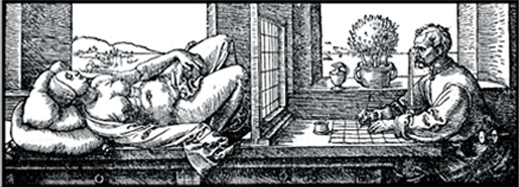NICOLAS Georges
-
Geographical Whole/Part Logic
Date de publication : 24-05-2022Auteurs :NICOLAS GeorgesAuteurs :MARCUS SolomonGeography is currently literally fragmented between the geographies of professional geographers (researchers, teachers, planners, geomaticians, popularizing workers, etc.), of non-geographic professionals (cartographers, journalists, writers, politicians, ideologists, etc.), and of everyone else (popular geographies, beliefs, myths, prejudices, etc.). To try to unify them would generate new metaphors that would feed anti-scientific and political discourses. Therefore, the point of view adopted here is not to formulate a metalanguage of geographies but to try to construct a geography as an exact science, using the All/Party logic as a starting point, since it is used explicitly or implicitly by all those who "geographize" in one way or another.
-
Re : Land Ontology: Semantics, Semiotics, and Geographic Modeling
Auteurs :NICOLAS GeorgesFor Yakoutes, Tengri God, guarantee political order, social order, and cosmic order. This belief, in the centre of their conception, influences their geointerpretation of landscapes. Is this "centre" explicit or implicit in the environmental vocabulary of Yakoutes?
-
Re : Land Ontology: Semantics, Semiotics, and Geographic Modeling
Auteurs :NICOLAS GeorgesFor Yakoutes, Tengri God, guarantee political order, social order, and cosmic order. This belief, in the centre of their conception, influences their geointerpretation of landscapes.
-
Re : CHRISTALLER: General principles, Operative principles
Auteurs :NICOLAS GeorgesTo measure central distance between places represented by points on a map Walter Christaller draws straight lines between places with the same population. This cartographic representation is “obviously” scientifically and "objective " and "neutral”. In reality it is determined by the will to create a pyramidal hierarchy of the central places according to their population. Therefore, these are not straight lines drawn between populated places which allowed Walter Christaller to deduct the hierarchy of places (line ® distance ® function ®hierarchy) but the hierarchy of the central places which allowed him to measure the distances separating them (hierarchy ® line ® distance ® function).
-
Re : WIKIPEDIA : Is the “neutral point of view” compatible with a scientific formulation of the truth?
Auteurs :NICOLAS GeorgesBeyond the material existence of a “thing” called “Christallerian model”, is it possible to consider that to write: “scientifiquement le modèle christallérien n’existe pas” (“scientifically, the Christallerian model does not exist”) do not respect the“neutral point of view” which is supposed to be one of Wikipedia’s “five pillars”?

